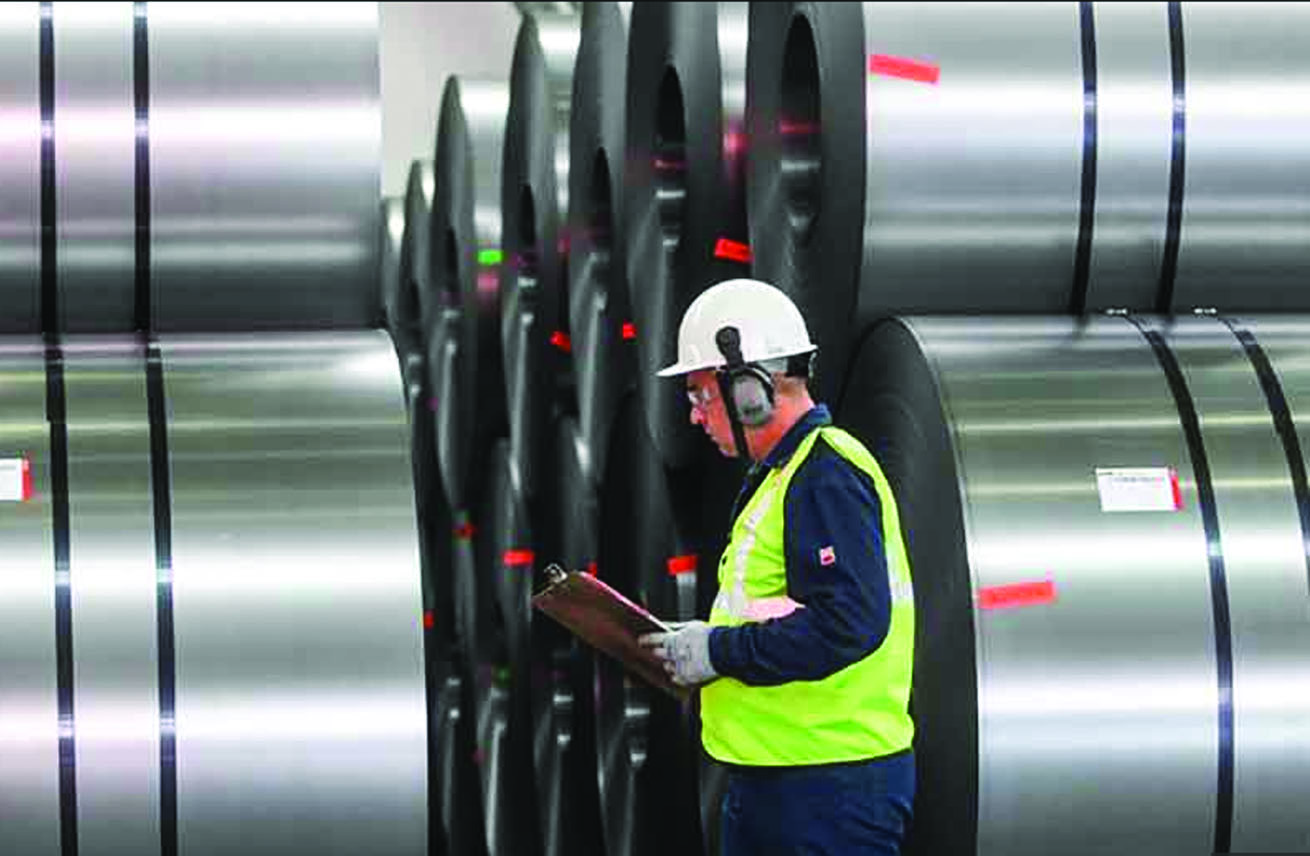No tariffs for Mexico and Canada if ‘fair’ NAFTA negotiated
by Mexico News Daily
United States President Donald Trump suggested today that Mexico and Canada could be exempt from new tariffs on aluminum and steel if the North American Free Trade Agreement (NAFTA) is renegotiated to better favor the U.S.
Trump flagged the possible exemption on Twitter this morning:
“We have large trade deficits with Mexico and Canada. NAFTA, which is under renegotiation right now, has been a bad deal for U.S.A. Massive relocation of companies & jobs. Tariffs on Steel and Aluminum will only come off if new & fair NAFTA agreement is signed.”
The president announced plans Thursday to introduce tariffs of 25 percent on imported steel and 10 percent on aluminum products, triggering fears of a trade war.
The proposal has been met with opposition, even from some senior figures in the president’s own party.
Congressman Kevin Brady and House of Representatives Speaker Paul Ryan are among those who have spoken out against it, with the former saying that Mexico and Canada should be exempt.
However, White House Trade Adviser Peter Navarro told CNN yesterday that there would be no exclusions, seemingly putting him at odds with Trump’s position today.
Commerce Secretary Wilbur Ross also said yesterday that there was no indication that Trump would consider exemptions for specific countries although he didn’t rule it out.
Today’s tweet was seen by some as a ploy to ramp up pressure on Mexico and Canada to cede ground to U.S. demands on contentious issues.
They include increasing U.S. content in the automotive sector and a proposed so-called sunset clause that would see the trilateral agreement automatically terminated if it is not updated every five years.
Trump followed his first post of the day on Twitter with another that said “Canada must treat our farmers much better” and “Mexico must do much more on stopping drugs pouring into the U.S.”
Foreign Affairs Secretary Luis Videgaray fired back shortly after, stating on Twitter that “dealing with drug trafficking is a shared responsibility between Mexico and the U.S.”
The online rhetoric came before the conclusion today of the seventh round of renegotiation talks in Mexico City.
Trump’s tariff announcement was unexpected but in response, Mexico’s deputy chief negotiator said yesterday that “Mexico will have to react in an equivalent way.”
Salvador Behar added that the tariff announcement “hasn’t contaminated the mood” of the current talks but said that it was “an irritation for Mexico and many other countries.”
The National Chamber of the Aluminum Industry (Calum) said that reciprocal measures should follow any decision to impose tariffs on Mexico, adding that it had full confidence in the Mexican government to respond adequately and quickly.
Thousands of jobs in the sector are at stake, it said in a statement.
Economy Secretary Ildefonso Guajardo also weighed in on Twitter, writing today that “Mexico shouldn’t be included in steel & aluminum tariffs. It’s the wrong way to incentivize the creation of a new & modern NAFTA.”
Kenneth Smith, the chief negotiator on the Mexican team, told reporters that Mexico would have to wait for an announcement next Tuesday to see if Mexico is excluded.
Because Mexico is a NAFTA and strategic partner of the U.S. it may choose to grant an exemption, he explained.
Alejandro Gómez, an international trade lawyer, said the proposed tariffs could actually be a violation of the 24-year-old trilateral trade agreement.
Progress on an updated NAFTA remains slow with just six of 30 chapters concluded so far.
At a joint press conference this afternoon to mark the end of the talks, U.S. Trade Representative Robert Lighthizer said that time was running “very short” and that the U.S. could instead negotiate separate bilateral deals with Mexico and Canada if needed.
All three countries previously agreed to expedite the renegotiation process as much as possible to avoid clashing with Mexico’s presidential election on July 1 and midterm elections in the U.S. in November.
Guajardo said the pace of talks should increase but made it clear that Mexico’s position is that “NAFTA is in the best interest of all three nations.”
Canadian Foreign Minister Chrystia Freeland described the week-long Mexico City round as “constructive” but added that “Canada would view any trade restrictions on Canadian steel and aluminum as absolutely unacceptable.”
News agency Reuters reported that no formal trilateral statement would be released.
Source: El Economista (sp), Milenio (sp), Expansión (sp), Reuters (en), Politico (en)



